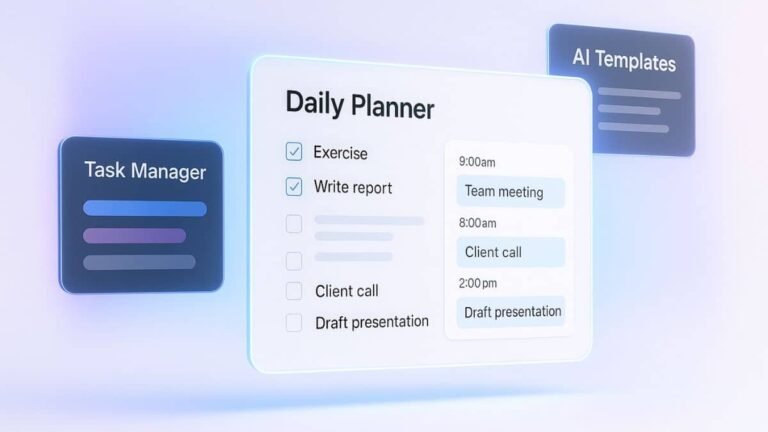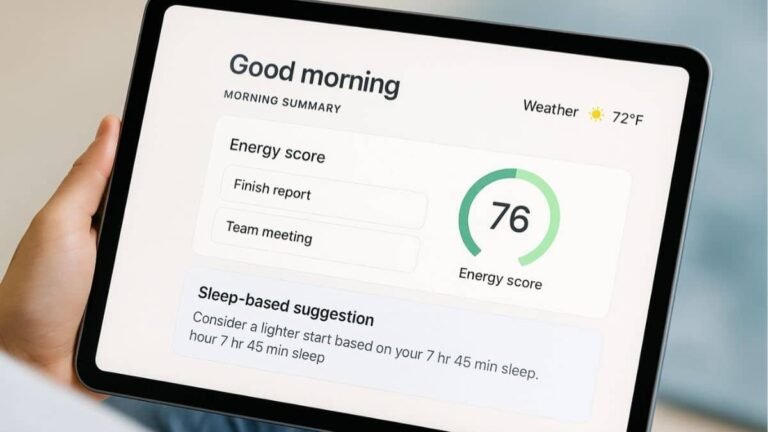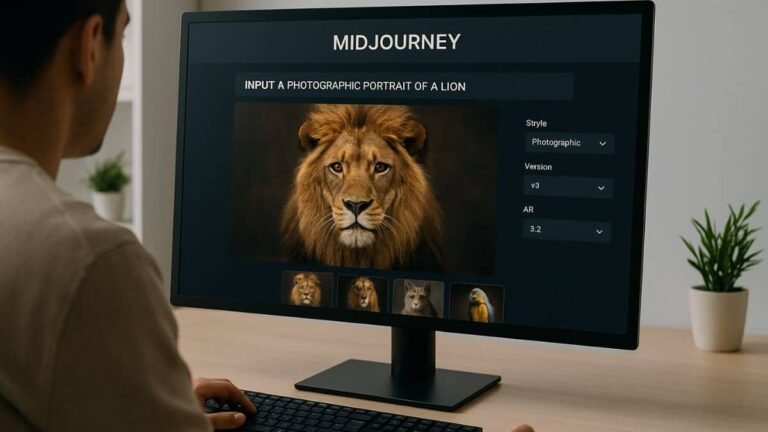Address
251 Little Falls Drive, Wilmington, DE 19808, United States

AI for digital wellness is reshaping how we interact with technology, turning endless screen time into mindful connection. Are your screens running your life or are you in control? With the rise of AI, digital wellness is no longer just about screen time limits. It’s about using smart tools to create space, regain focus, and find peace of mind. In this guide, you’ll discover how to strike a healthier balance between tech and life without ditching your devices.
Table of Contents
Understanding digital wellness in the modern world
Digital wellness isn’t about quitting technology, it’s about using it with intention. In our hyper-connected world, we often slide into endless scrolling or multitasking without realizing it. This constant interaction with screens can lead to mental fatigue, anxiety, and poor sleep. That’s where digital wellness steps in: it’s the conscious effort to maintain a healthy relationship with tech.
The role of AI in shaping healthy tech habits
Artificial Intelligence isn’t just for data analysis and automation, it’s becoming a powerful ally in building mindful digital routines. AI can help track screen time, suggest wellness breaks, and even prompt us to shift focus when we’ve been staring at a device for too long. These subtle nudges can dramatically improve how we interact with technology.
Common digital burnout signs (and how AI can help)
Feeling drained after using your phone or computer? You’re not alone. Some typical symptoms of digital burnout include:
- Reduced attention span
- Constant urge to check notifications
- Eye strain and headaches
- Lack of motivation
AI tools are now smart enough to detect these behaviors. According to the National Library of Medicine, excessive screen use can lead to measurable cognitive fatigue and burnout. For example, apps like RescueTime or Opal use AI to analyze usage patterns and suggest timely breaks. When integrated into your daily life, these tools help restore your focus and energy.

Smart AI tools that encourage better screen time
Choosing the right tools can make all the difference. Let’s look at two categories where AI truly shines in promoting digital balance:
AI-powered focus apps
Apps like Forest or Focus@Will use machine learning to help users stay concentrated. Some offer gamified experiences like planting a virtual tree for each distraction-free session. Others use audio AI to deliver soundscapes scientifically designed to improve attention. If you’re looking for more productive habits, check out these ChatGPT prompts to unlock a more productive routine.
Digital detox planners with AI
Planning downtime is just as essential as scheduling work. With AI-assisted planners, you can automate when to disconnect and receive reminders when it’s time to log off. If you’re still learning how to pick the right tools, this beginner-friendly guide on how to learn AI tools makes the whole process much less overwhelming.
Personal data and privacy: Finding the wellness line
One of the biggest concerns with AI tools is data privacy. Many apps collect behavioral data to personalize experiences. But how much is too much? Digital wellness means being aware of which permissions you grant and ensuring the AI you use is transparent about data usage. Look for tools that offer privacy dashboards or allow manual control over what gets shared. The Privacy Rights Clearinghouse is a great resource to understand what data you might be giving up when using wellness apps.
Real-life examples: People using AI for digital wellness and balance
Jane, a remote designer, uses AI-powered music to stay in flow during deep work, while setting automatic limits on social media. Mark, a college student, schedules digital detox blocks into his calendar using an AI planner. Real stories like these show that even simple AI integrations can reduce burnout and boost mental clarity.
Mistakes to avoid when relying on AI for digital wellness
- Over-automation: Letting AI take over everything can reduce self-awareness.
- Ignoring emotional health: Tech can’t replace human support or therapy.
- Assuming AI is flawless: Always review AI suggestions before acting on them.
The key is to use AI as an assistant not as a replacement for intentional habits.
Expert insights: Can AI really make us healthier?
“AI is best used as a mirror to our behavior, one that helps us see what’s working and what’s not” says Dr. Lena Patel, a cognitive tech researcher.
Experts agree: when AI is combined with mindful practice, it doesn’t just help us disconnect, it helps us connect better with ourselves.
Creating a balanced daily routine with AI support
Want to build a healthier relationship with technology? Try weaving AI into your daily habits:

Morning check-ins
Use AI to scan your sleep quality and recommend energy-boosting tasks or breaks based on your calendar. Tools like Notion AI and fitness integrations can help track mood and suggest adjustments.
Evening unplug rituals
AI apps like Calm or Headspace now use adaptive routines to lower stimulation before bed. Their features are backed by sleep research, such as this Sleep Foundation guide on digital sleep hygiene. Some even adjust brightness and sound based on your stress levels.
Looking for smarter planning throughout your day? Here are 7 remarkably easy ways to plan smarter with AI that can reduce stress without overloading your schedule.
Final thoughts on merging AI with mindful living
AI for digital wellness isn’t a trend, it’s a toolkit. When used wisely, it offers more than convenience: it brings clarity. Balancing tech and life doesn’t mean cutting devices out, but using them with awareness. Let AI handle the noise, so you can focus on what truly matters.
In the end, AI for digital wellness is about intentionality not avoidance. By choosing the right tools and habits, you can enjoy technology without letting it drain you. Start small, stay mindful, and let AI support your goals, not distract from them. Ready to unplug with purpose? Your healthier digital routine starts now.










